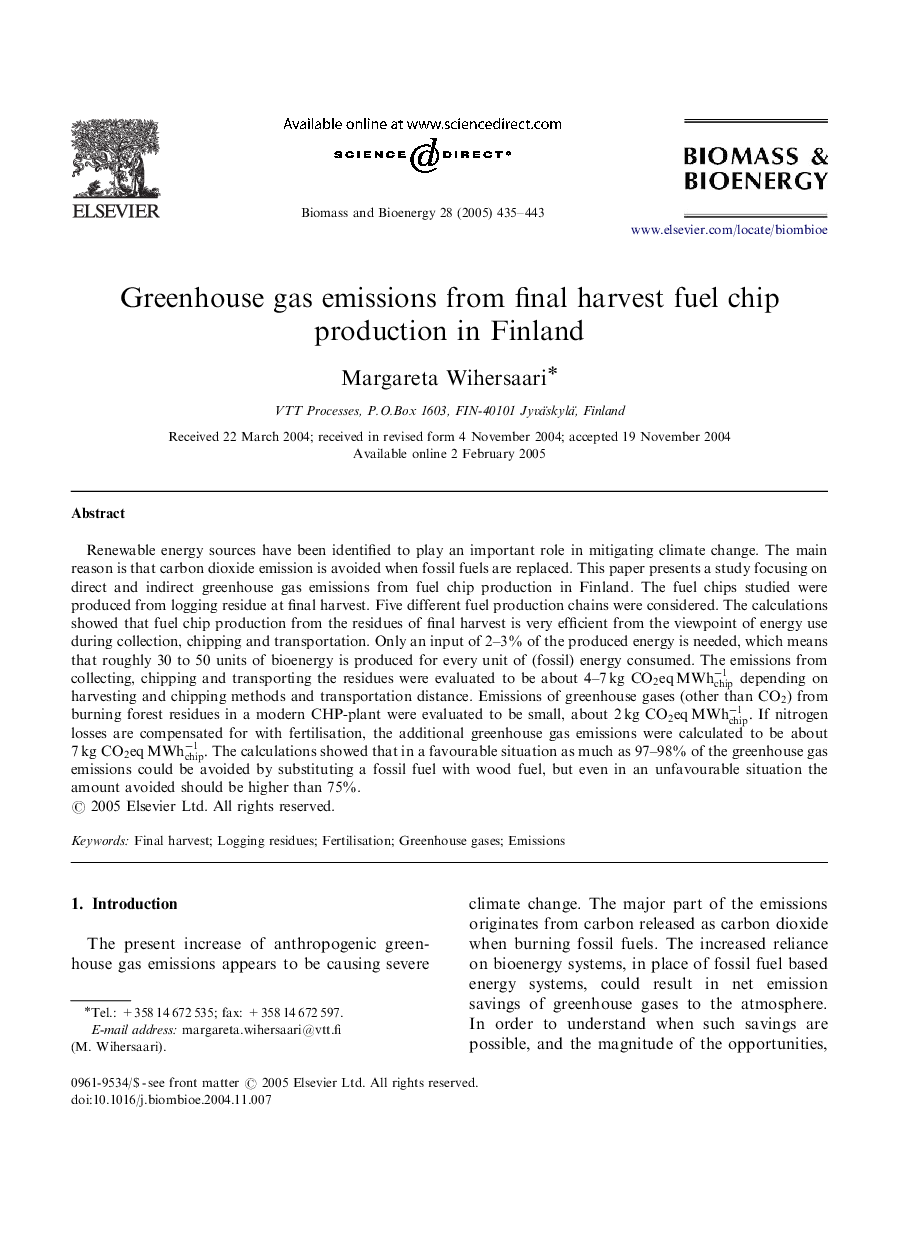| Article ID | Journal | Published Year | Pages | File Type |
|---|---|---|---|---|
| 10394001 | Biomass and Bioenergy | 2005 | 9 Pages |
Abstract
Renewable energy sources have been identified to play an important role in mitigating climate change. The main reason is that carbon dioxide emission is avoided when fossil fuels are replaced. This paper presents a study focusing on direct and indirect greenhouse gas emissions from fuel chip production in Finland. The fuel chips studied were produced from logging residue at final harvest. Five different fuel production chains were considered. The calculations showed that fuel chip production from the residues of final harvest is very efficient from the viewpoint of energy use during collection, chipping and transportation. Only an input of 2-3% of the produced energy is needed, which means that roughly 30 to 50 units of bioenergy is produced for every unit of (fossil) energy consumed. The emissions from collecting, chipping and transporting the residues were evaluated to be about 4-7Â kg CO2eqMWhchip-1 depending on harvesting and chipping methods and transportation distance. Emissions of greenhouse gases (other than CO2) from burning forest residues in a modern CHP-plant were evaluated to be small, about 2Â kg CO2eqMWhchip-1. If nitrogen losses are compensated for with fertilisation, the additional greenhouse gas emissions were calculated to be about 7kgCO2eqMWhchip-1. The calculations showed that in a favourable situation as much as 97-98% of the greenhouse gas emissions could be avoided by substituting a fossil fuel with wood fuel, but even in an unfavourable situation the amount avoided should be higher than 75%.
Related Topics
Physical Sciences and Engineering
Chemical Engineering
Process Chemistry and Technology
Authors
Margareta Wihersaari,
